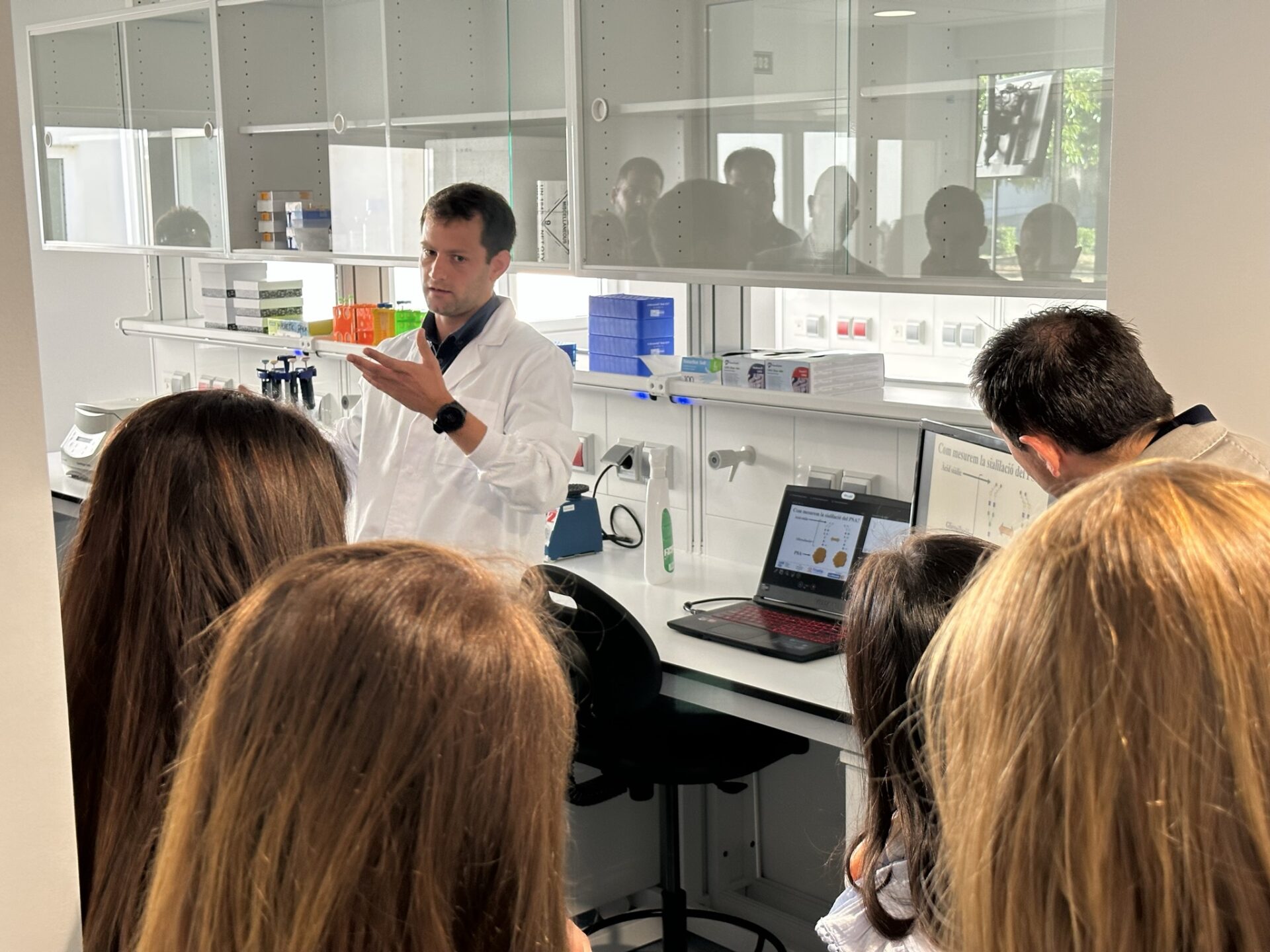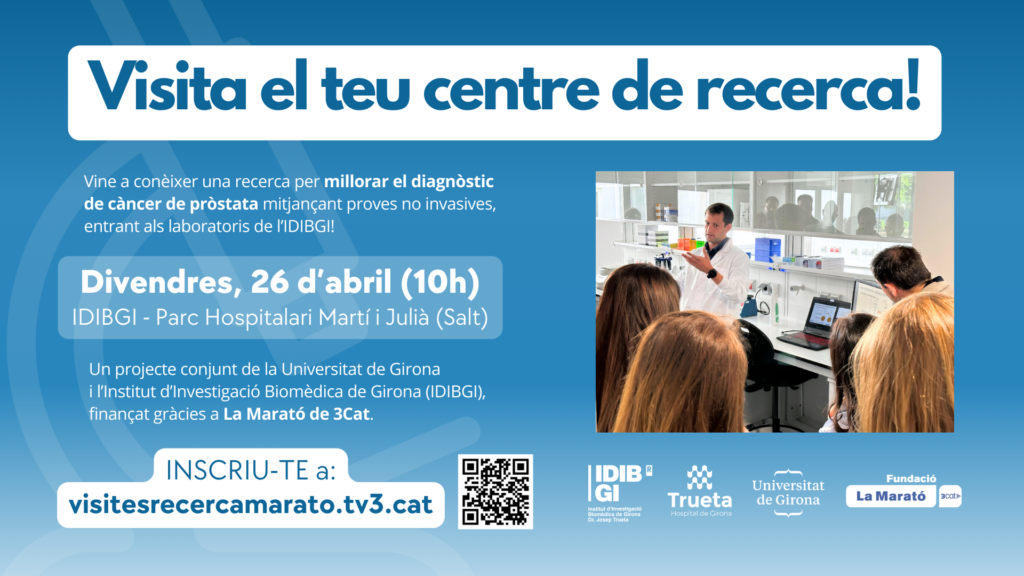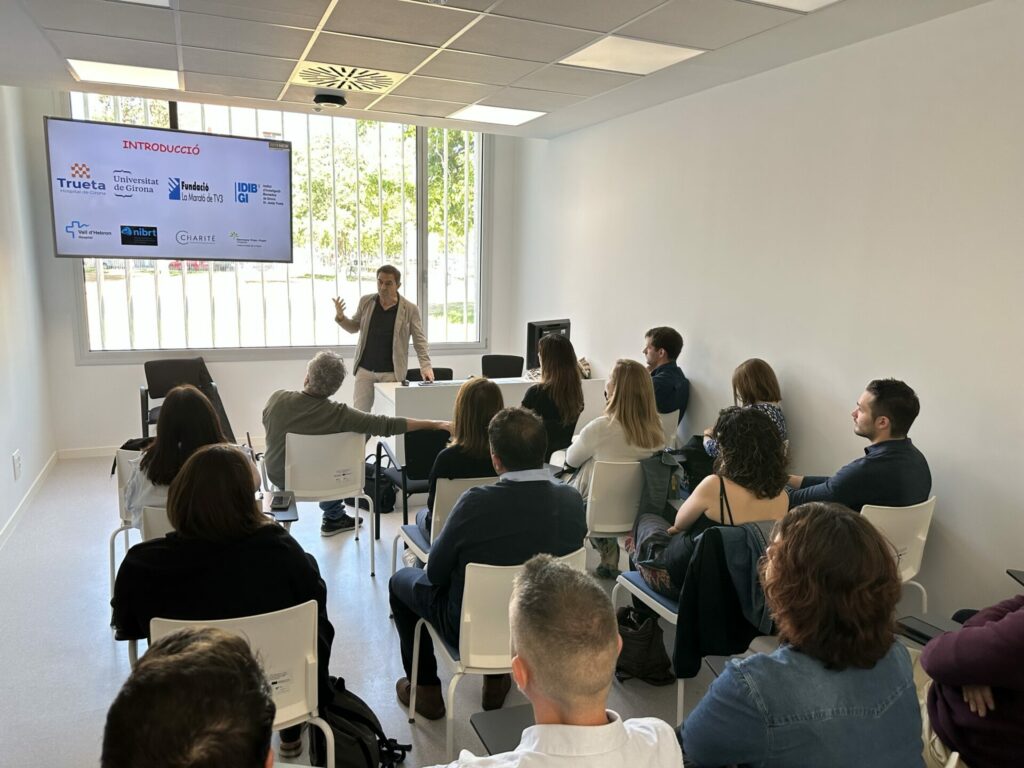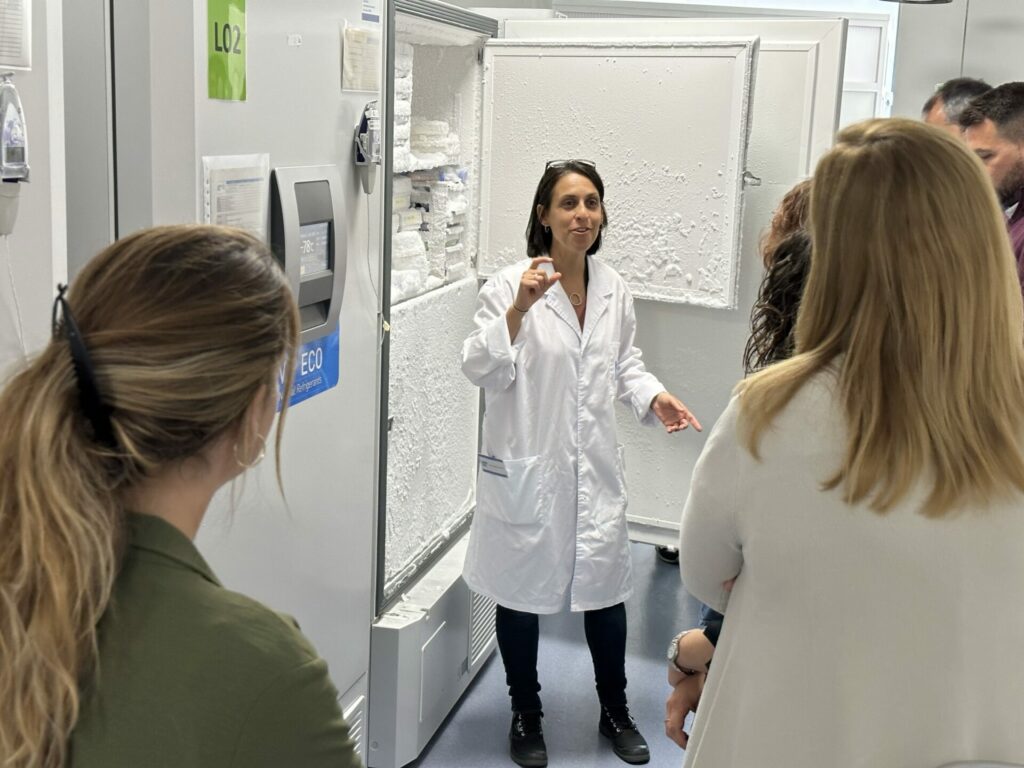
Girona Biomedical Research Institute (IDIBGI) is taking part in the "Visit your research centre" initiative promoted by the La Marató de 3Cat to bring research closer to the public. On Thursday 26 April at 10 a.m. IDIBGI will open the doors of its laboratories to present a joint project between the University of Girona and IDIBGI that aims to improve the diagnosis of prostate cancer using non-invasive methods. This research is being carried out thanks to the solidarity donations collected by La Marató in 2018, which focused on cancer.
Dr. Josep Comet, associate researcher at IDIBGI and Head of the Urology Department at the Hospital Dr. Josep Trueta, is co-leading this research with Dr. Esther Llop, principal investigator of the Cancer Biochemistry Research Group at the University of Girona (UdG).
Currently, prostate cancer can only be diagnosed by biopsy. This is a necessary test for definitive diagnosis, but uses a method that is invasive for the patient. This test is sometimes inefficient and costly because it requires more than one biopsy to reach a diagnosis.
The UdG and IDIBGI research project aims to advance in the use of non-invasive methodologies for the diagnosis of prostate cancer that allow the minimum number of biopsies to be performed, both to improve the patient's quality of life and health costs, as well as to be as efficient as possible.
This research project studies two non-invasive methods to improve the diagnosis of prostate cancer, which would allow patients with suspected more aggressive tumours to be treated more quickly and effectively. It would also reduce the number of biopsies in patients with a low risk of having a significant tumour, thus avoiding unnecessary treatment.



About IDIBGI
Girona Biomedical Research Institute (IDIBGI) carries out translational research to improve people's health and cure. IDIBGI is organised into 23 research groups distributed in five scientific areas (Cardiovascular and Respiratory, Metabolism and Inflammation, Neurosciences, Oncohematology and Mental Health) that bring together more than 400 people, including health professionals and basic researchers, in the Girona region.
The IDIBGI is a public foundation made up of the Generalitat de Catalunya, the Institut Català Salut (ICS) Girona, the Institut d'Assistència Sanitària (IAS), the Institut Català d'Oncologia (ICO) Girona, and the Universitat de Girona. It has been a CERCA centre (Centres de Recerca de Catalunya) since 2005.